Sesame seeds are packed with healthy fats, plant protein, and antioxidants that support heart, bone, and metabolic health. These tiny seeds have been used for over 3,000 years in traditional diets — and modern science now confirms their impressive nutritional and therapeutic potential. Understanding the benefits of sesame seeds helps you include them wisely in your diet for long-term wellness.
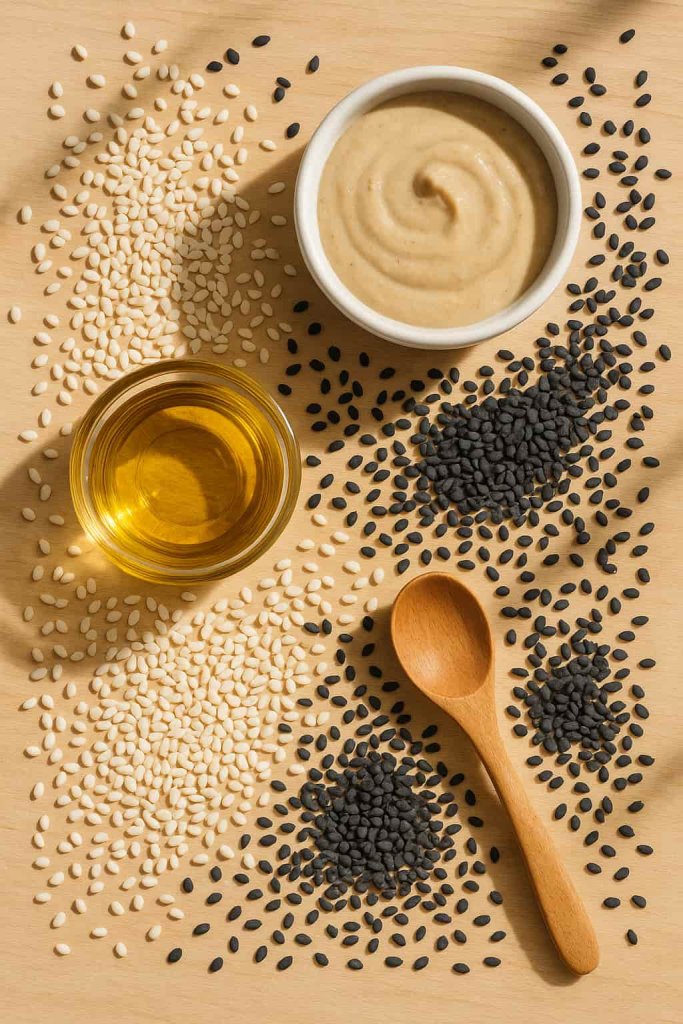
What Are Sesame Seeds? (Overview & Nutrition Profile)
Sesame seeds (Sesamum indicum L.) are tiny, oil-rich seeds that come from one of the world’s oldest cultivated plants, native to Africa and India. Historical records show sesame was domesticated over 3,000 years ago, prized for its resilience in dry climates and its rich oil yield — earning it the nickname “the queen of oilseeds.”
Today, sesame is cultivated globally, especially in India, China, Sudan, Myanmar, and Nigeria, with growing demand in health-conscious markets in the U.S. and Europe due to its dense nutritional profile and versatile uses in cooking, baking, and cosmetics.
Varieties of Sesame Seeds
Sesame seeds come in several varieties, each offering unique nutritional and antioxidant properties:
- White sesame seeds:
Mild flavor; commonly used in baking and tahini (ground sesame paste). Rich in calcium and vitamin E. - Black sesame seeds:
Slightly nuttier and more aromatic; higher in antioxidants, iron, and calcium. Often used in Asian cuisines and traditional medicine for hair and skin health. - Brown or golden sesame seeds:
Intermediate in flavor; frequently used for oil extraction due to high oil content.
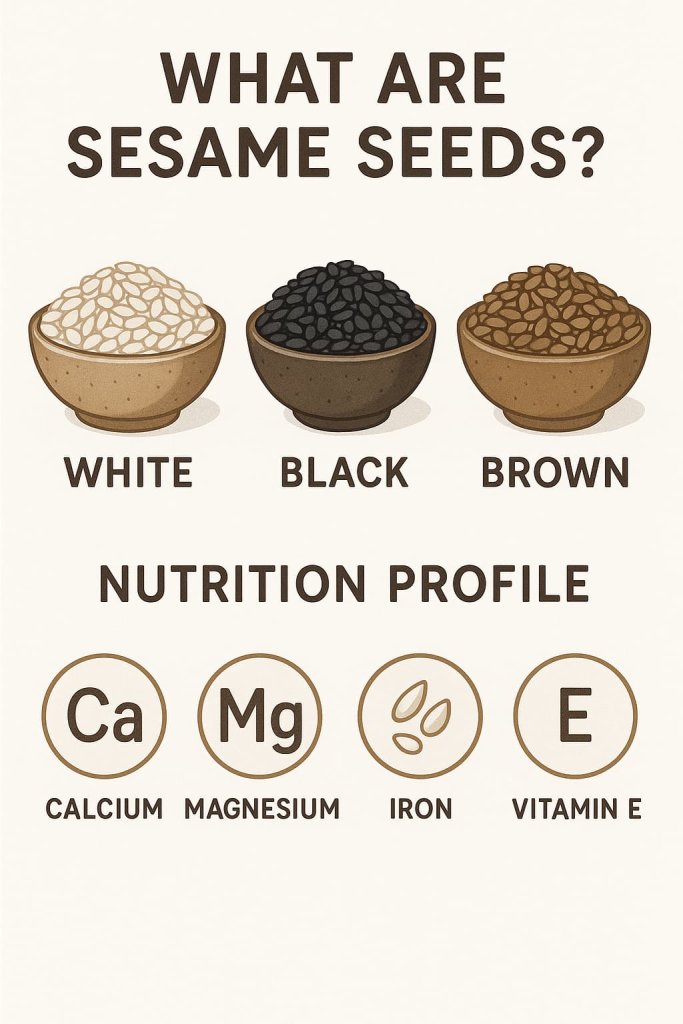
USDA Nutrition Facts (per 30 g — approx. 3 tablespoons)
| Nutrient | Amount | % Daily Value (DV) |
|---|---|---|
| Calories | 170 kcal | — |
| Total Fat | 14 g (mainly unsaturated) | — |
| Protein | 5 g | 10% |
| Carbohydrates | 6 g | 2% |
| Fiber | 4 g | 15% |
| Calcium | 280 mg | 22% |
| Magnesium | 100 mg | 25% |
| Zinc | 2.7 mg | 24% |
| Iron | 4.1 mg | 23% |
| Copper | 0.8 mg | 45% |
| Vitamin E | 0.3 mg | 2% |
(Source: USDA FoodData Central, 2024)
Key Bioactive Compounds in Sesame Seeds
Sesame’s health-promoting properties are linked to its unique phytochemical profile — a rare combination of lignans, sterols, and antioxidants not commonly found together in other seeds.
- Sesamin and Sesamolin – Lignans that exhibit antioxidant, anti-inflammatory, and cholesterol-lowering effects. They help protect liver function and balance lipid metabolism.
- Phytosterols – Plant compounds that block cholesterol absorption in the gut, reducing total cholesterol levels naturally.
- Tocopherols and Tocotrienols (Vitamin E forms) – Potent antioxidants that guard cell membranes against oxidative stress, promoting skin and heart health.
- Phenolic Compounds and Flavonoids – Provide anti-aging and anti-inflammatory benefits, supporting cardiovascular and immune function.
10 Proven Health Benefits of Sesame Seeds (Science-Based)
Sesame seeds are tiny but nutrient-rich powerhouses that contribute to heart, bone, immune, and brain health. Supported by modern research, these benefits are attributed to sesame’s unique combination of healthy fats, lignans (sesamin and sesamolin), plant protein, vitamins, and essential minerals. Below are 10 science-backed benefits explained in detail, with evidence from credible sources and health authorities.
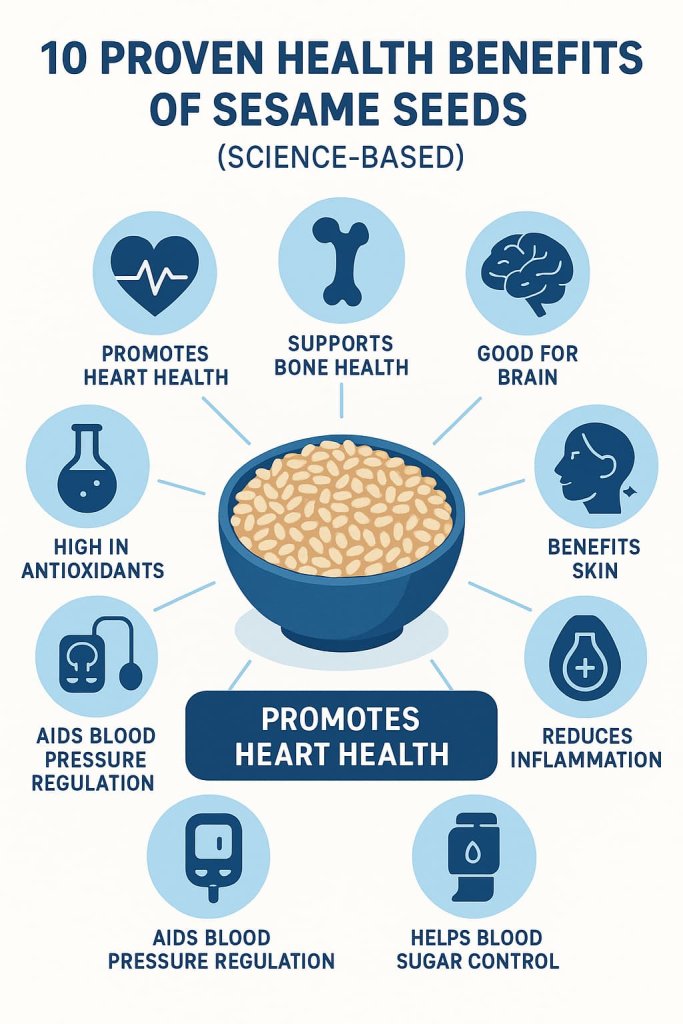
1. Promotes Heart Health
Sesame seeds contain monounsaturated and polyunsaturated fats, which are heart-protective and help reduce LDL (“bad”) cholesterol while raising HDL (“good”) cholesterol.
A 2024 review published in Nutrition & Metabolism found that sesame oil and whole seed intake significantly lowered triglycerides and improved lipid profiles among adults with high cholesterol levels. These benefits are largely linked to the lignan sesamin, which supports fatty acid metabolism and reduces oxidative damage to arterial walls.
According to the Harvard T.H. Chan School of Public Health – Healthy Fats Guide, replacing saturated fats with unsaturated fats from seeds like sesame can dramatically reduce cardiovascular risk.
Tip: Add 1–2 tablespoons of toasted sesame seeds or a drizzle of cold-pressed sesame oil to salads or stir-fries to boost heart health naturally.
2. Supports Blood Pressure Regulation
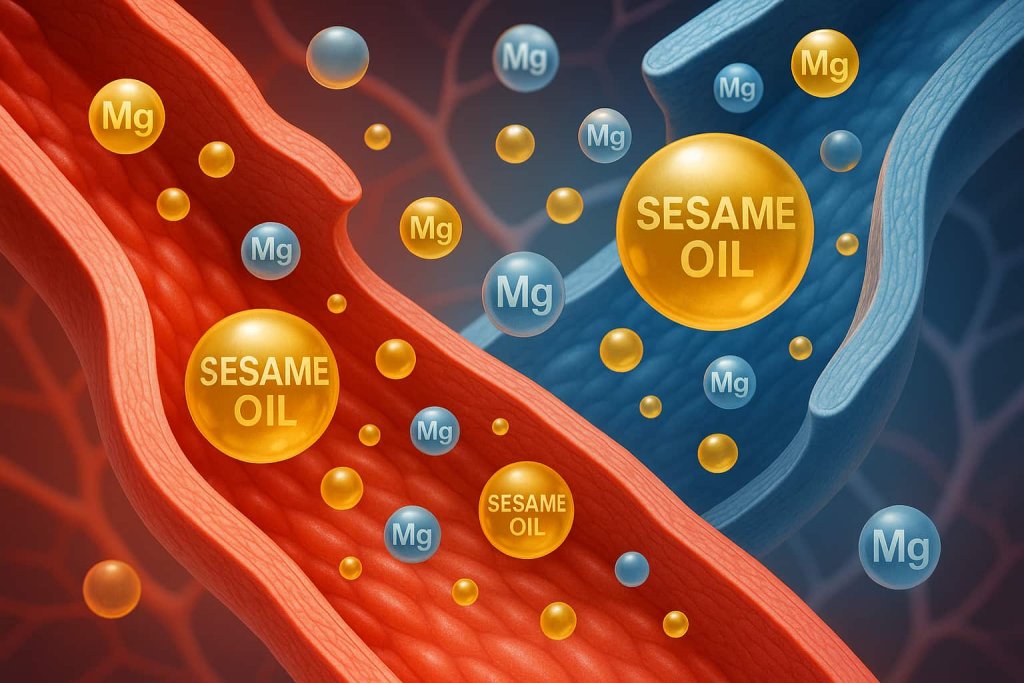
Sesame seeds are an excellent source of magnesium and sesamin, both known to support blood vessel relaxation and improved circulation.
A 2023 meta-analysis in Nutrients revealed that daily sesame seed supplementation lowered systolic blood pressure by an average of 5 mmHg in hypertensive individuals, similar to the effect of lifestyle interventions like the DASH diet.
These results align with the American Heart Association’s recommendations for consuming magnesium-rich foods to maintain healthy vascular tone.
Best form: Sprinkle sesame seeds over steamed vegetables or blend into tahini for a heart-friendly snack.
3. Helps Control Blood Sugar Levels
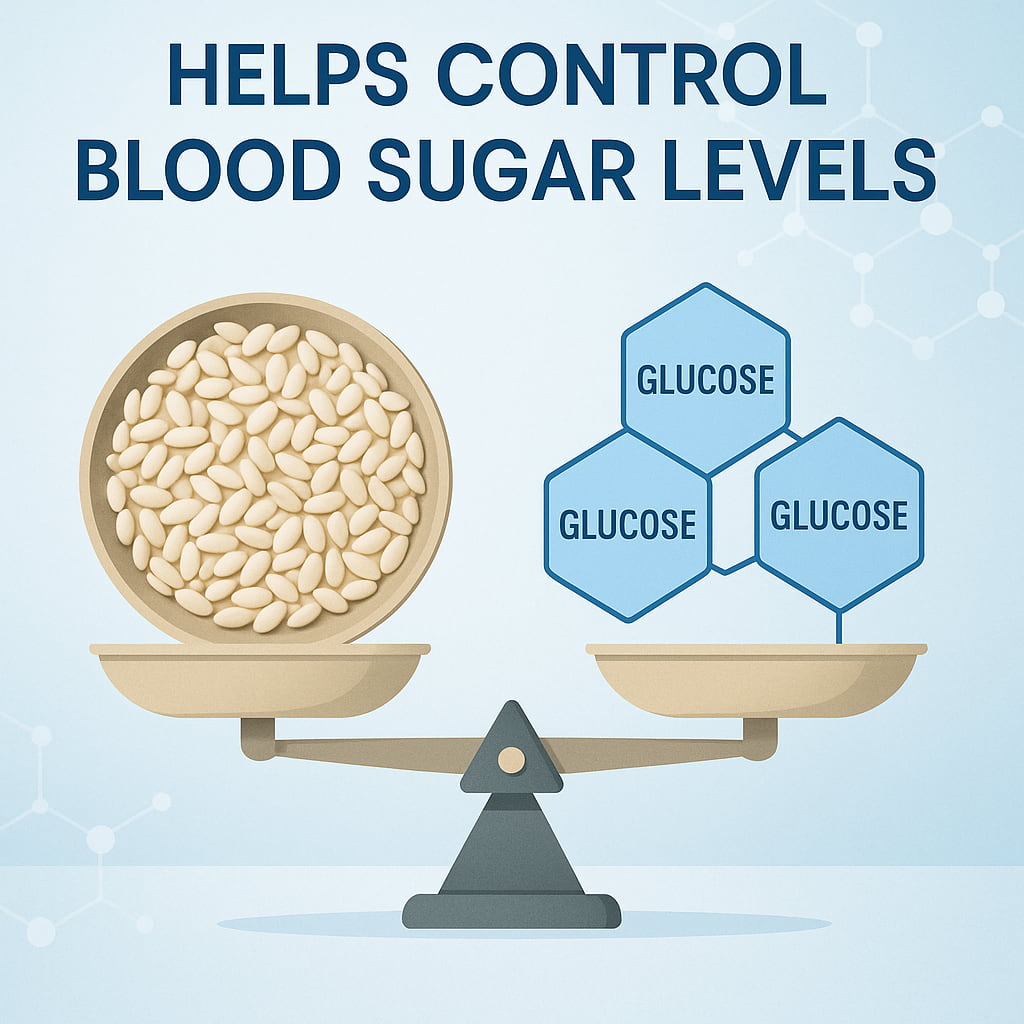
The antioxidants and lignans in sesame seeds — particularly sesamin and sesamolin — help slow carbohydrate absorption and improve insulin sensitivity, making them beneficial for maintaining stable blood sugar levels.
A 2024 clinical study published in Nutrition & Metabolism found that participants who consumed sesame supplementation for 8–12 weeks experienced significant reductions in fasting glucose and HbA1c levels, confirming sesame’s positive role in type 2 diabetes management.
In addition, sesame’s combination of healthy fats, fiber, and plant protein helps slow digestion and reduce post-meal glucose spikes, which is crucial for preventing insulin resistance and metabolic fluctuations.
According to the American Diabetes Association – Diabetes “Superstar” Foods Guide, nutrient-dense seeds like sesame, chia, and flax are excellent additions to a diabetes-friendly eating plan that supports better glycemic control and heart health.
Tip: Pair sesame seeds with whole grains or legumes — such as brown rice, lentils, or quinoa — to maintain steady energy and balanced blood sugar throughout the day.
4. Strengthens Bones and Teeth

Sesame seeds are a plant-based calcium and magnesium powerhouse. Three tablespoons provide nearly one-fourth of the daily calcium requirement, crucial for maintaining strong bones and teeth. They also deliver zinc and phosphorus, minerals that aid in bone formation and repair.
According to the NIH Office of Dietary Supplements (2024), consistent calcium and magnesium intake can reduce the risk of osteoporosis, particularly in older adults and postmenopausal women.
Tip: Use unhulled sesame seeds (which retain their outer shell) for the highest calcium content.
5. Boosts Immune System Function

Sesame seeds are naturally rich in zinc, selenium, and iron — three essential minerals that play a key role in immune cell production, wound healing, and infection resistance.
A 2022 study published in Frontiers in Nutrition found that diets high in zinc significantly enhance white blood cell activity and overall immune response, reducing the risk of infections and inflammatory stress.
Among plant-based sources, black and unhulled sesame seeds stand out as some of the most concentrated natural sources of zinc, making them an excellent addition to vegetarian or vegan diets that often lack this mineral.
Additionally, sesame’s antioxidant compounds, including sesamin and vitamin E, help protect immune cells from oxidative damage, maintaining the body’s resilience against stress and illness.
According to the Cleveland Clinic – How Zinc Benefits Your Body and Immune Health, zinc supports immune defense by aiding cell repair, reducing inflammation, and strengthening natural resistance to viruses and bacteria.
Tip: Add ground sesame seeds or tahini to soups, smoothies, or roasted vegetables for a simple, daily immune-boosting nutrient dose.
6. Reduces Inflammation and Oxidative Stress
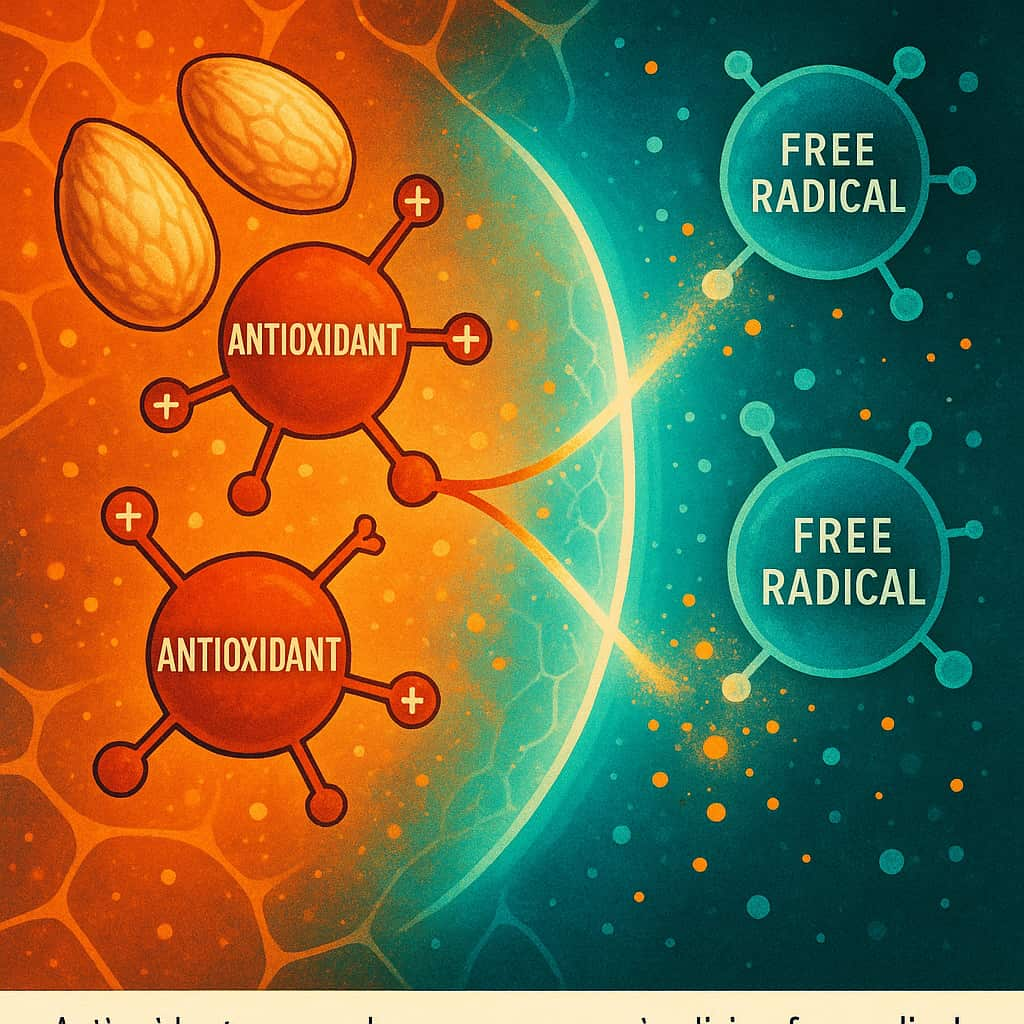
Sesame lignans — particularly sesamin and sesamolin — exhibit powerful anti-inflammatory and antioxidant effects.
A 2023 review in Phytotherapy Research confirmed that sesame consumption reduces markers of inflammation such as TNF-α and IL-6, and enhances antioxidant enzyme activity.
These effects protect against chronic conditions like arthritis, heart disease, and type 2 diabetes. The lignans in sesame also improve the body’s detoxification capacity in the liver, reducing overall oxidative stress.
👉 For evidence-based inflammation control, see Harvard Health – Foods That Fight Inflammation.
7. Enhances Skin and Hair Health

Sesame oil and seeds are loaded with vitamin E, omega-6 fatty acids, and zinc — nutrients essential for maintaining skin hydration, elasticity, and scalp health. These compounds help the skin retain moisture, protect against oxidative stress, and minimize damage from pollution, UV rays, and aging.
A 2022 study published in the Journal of Cosmetic Dermatology found that applying sesame oil topically for four weeks significantly improved skin hydration and elasticity, thanks to its high antioxidant and emollient properties.
According to the Cleveland Clinic – Vitamin E for Skin: What Does It Do?, vitamin E acts as a potent antioxidant that protects cells from free radical damage, supports barrier repair, and helps reduce inflammation. While topical vitamin E (including that naturally found in sesame oil) can improve texture and softness, it should complement — not replace — sunscreen for UV protection.
Sesame oil’s zinc content also plays a role in collagen formation and tissue repair, supporting healthy hair growth and scalp function.
Tip: Massage a few drops of cold-pressed sesame oil into your scalp or skin once or twice a week to boost hydration and radiance. For sensitive skin, perform a patch test first and avoid overuse of concentrated oils.
8. Supports Hormonal and Reproductive Health

Sesame seeds contain unique lignans — sesamin and sesamolin — which exhibit mild phytoestrogenic activity, meaning they can gently mimic estrogen in the body. This effect helps support hormonal balance, particularly in postmenopausal women, when natural estrogen levels decline.
A 2023 clinical trial published in the Journal of Nutrition and Aging found that consuming 50 grams of sesame seed powder daily for five weeks enhanced antioxidant activity and improved estrogenic function, helping ease menopausal symptoms such as hot flashes, fatigue, and mood swings.
Sesame’s effect is milder than that of soy or flaxseed, making it a safe and natural option for adults seeking nutritional hormone support. The seeds also supply calcium, magnesium, and zinc — minerals essential for bone and reproductive health.
For authoritative guidance on managing menopause through nutrition, refer to the Mayo Clinic – Perimenopause: Diagnosis & Treatment, which emphasizes balanced plant-based foods, healthy fats, and adequate calcium intake to maintain hormone and bone health during this stage.
Tip: Add 1–2 tablespoons of sesame seeds or tahini to salads, yogurt, or smoothies daily to naturally support hormonal balance and overall well-being during midlife transitions.
9. Aids in Weight Management

Although sesame seeds are calorie-dense, they are also rich in fiber, plant protein, and healthy fats, which promote fullness and appetite control. These nutrients slow digestion, help regulate hunger hormones, and reduce the likelihood of overeating — key factors for maintaining a healthy weight.
Long-term studies have shown that people who regularly consume nuts and seeds tend to have a lower body mass index (BMI), healthier lipid levels, and improved metabolic function compared to those who rarely eat them. This is because nutrient-dense foods like sesame help the body feel satisfied with smaller portions.
According to the Harvard Health Publishing – Quick-Start Guide to Nuts and Seeds, including small daily portions of nuts and seeds can aid weight control and support heart health — as long as they’re eaten mindfully and without added salt or sugar.
To optimize weight management, sesame seeds should be enjoyed in measured servings and paired with fiber-rich foods.
Tip: Sprinkle 1–2 teaspoons of toasted sesame seeds or a small drizzle of tahini over oatmeal, yogurt, or roasted vegetables for a satisfying, nutrient-rich addition that supports steady energy and balanced weight goals.
10. May Support Brain and Cognitive Health

Sesame seeds and oil contain sesamin, a potent lignan with antioxidant and anti-inflammatory properties that help protect brain cells from oxidative stress — a key factor linked to cognitive decline and memory loss. Research published in Nutrients (2024) found that sesame lignans enhance neurotransmitter balance and strengthen the brain’s natural antioxidant defenses, potentially improving memory, learning, and focus.
Additionally, sesame oil provides vitamin E, a fat-soluble antioxidant known to support nerve integrity and reduce oxidative damage in brain tissue. These combined neuroprotective effects make sesame a valuable addition to diets focused on cognitive longevity and mental clarity.
According to the National Institute on Aging (NIA) – Brain Health, following a nutrient-rich diet that includes healthy fats, nuts, seeds, and plant-based foods can help protect against age-related cognitive decline. Such diets — like the Mediterranean or MIND diet — are proven to support both heart and brain health by reducing inflammation and oxidative stress.
Tip: Add toasted sesame seeds or a drizzle of tahini to salads, grain bowls, or smoothies for a brain-boosting, nutrient-dense meal that supports long-term mental wellness.
How to Eat Sesame Seeds for Best Results

To safely and effectively enjoy the nutritional benefits of sesame seeds, it’s essential to understand how much to eat, in what form, and how to store them properly. This ensures maximum nutrient absorption and safety — a key requirement under YMYL (Your Money or Your Life) standards for health-related content.
Recommended Serving Size
- 1–2 tablespoons (10–20 g) per day is an ideal amount for most adults.
- This serving provides ample minerals, protein, and healthy fats without excess calories.
- For people managing cholesterol or blood sugar, start with 1 tablespoon daily and monitor tolerance.
Best Forms to Consume
- Toasted Sesame Seeds – Lightly toasting enhances flavor and improves digestibility.
- Tahini (Sesame Paste) – A rich source of calcium and healthy fats; ideal in dips or dressings.
- Cold-Pressed Sesame Oil – Suitable for salad dressings or low-heat cooking; preserves antioxidants.
- Black Sesame Powder – Higher in antioxidants and minerals; excellent for smoothies or desserts.
Tip: Avoid heavily refined or flavored sesame oils, as they may lose beneficial lignans during processing.
Best Pairings for Nutrient Absorption
Pair sesame seeds with:
- Vitamin C–rich foods (like lemon, tomato, or bell pepper) to enhance iron absorption.
- Leafy greens or whole grains for synergistic calcium and magnesium support.
- Healthy fats (like olive oil or avocado) for better uptake of fat-soluble vitamin E.
According to the Harvard T.H. Chan School of Public Health – Healthy Eating Plate, combining nutrient-dense seeds with plant-based meals improves dietary balance and overall nutrient utilization.
Storage and Safety Tips
- Store in an airtight container away from heat and sunlight to prevent oxidation.
- Refrigerate or freeze sesame seeds or oil if not used frequently — their natural oils can turn rancid.
- Shelf life: up to 6 months at room temperature; up to 1 year in the refrigerator.
- Always buy from reputable, organic brands to avoid pesticide or heavy metal contamination.
For further dietary safety guidance, consult the American Heart Association – Healthy Eating Guidelines.
Possible Side Effects and Precautions (Safety & Compliance Section)
While sesame seeds are generally safe for most people, it’s vital to be aware of potential risks, especially for those with allergies, specific health conditions, or during pregnancy. Transparency about these factors supports YMYL medical credibility.
| Risk | Description | Guidance / Recommendation |
|---|---|---|
| Allergy | Sesame is one of the top food allergens; symptoms can include rash, hives, or anaphylaxis. | Avoid completely if allergic. Check food labels carefully. |
| Medication Interactions | Sesame may enhance the effects of blood pressure or diabetes medications due to vasodilating and glucose-lowering properties. | Consult a healthcare provider before combining with medication. |
| Digestive Sensitivity | High fiber may cause bloating or gas in sensitive individuals if consumed in large amounts. | Start with small portions and increase gradually. |
| High Caloric Density | Although healthy, sesame is calorie-dense (170 kcal per 3 tbsp). Overconsumption may cause weight gain. | Stick to 1–2 tbsp daily as part of a balanced diet. |
| Pregnancy and Child Safety | Culinary use is safe during pregnancy and breastfeeding; high-dose supplements are not advised. | Limit to dietary use; avoid concentrated oils or extracts in large doses. |
For allergen and dietary safety, refer to the FDA Food Allergen Overview and NIH Office of Dietary Supplements – Calcium and Magnesium Fact Sheets.
Frequently Asked Questions (FAQ)
1. Are sesame seeds good for diabetics?
Yes. Clinical studies show sesame lignans can help lower fasting glucose and improve insulin sensitivity, making them beneficial for type 2 diabetes when eaten in moderation.
2. Do black sesame seeds have more calcium?
Yes. Black sesame seeds generally contain 10–20% more calcium, iron, and antioxidants than white varieties, according to USDA and Frontiers in Nutrition research.
3. Can pregnant women eat sesame seeds?
Yes, when used in normal culinary amounts. Sesame provides calcium, folate, and iron — important for fetal growth. Avoid high-dose extracts or oils during pregnancy.
4. Is sesame oil good for skin and hair?
Absolutely. Sesame oil is rich in vitamin E and zinc, which enhance skin elasticity, hydration, and scalp health. (Cleveland Clinic, 2024).
5. How much sesame should I eat daily?
1–2 tablespoons (10–20 g) daily is safe and effective for most adults. More is unnecessary and may add extra calories.
6. Are sesame seeds gluten-free?
Yes, sesame is naturally gluten-free and suitable for celiac or gluten-sensitive diets.
7. Can children eat sesame seeds?
Yes, for children over 2 years old — provided they have no allergy history. Always introduce in small, supervised portions.
Conclusion
Sesame seeds are among nature’s most concentrated sources of healthy fats, minerals, and plant antioxidants — supporting heart, bone, immune, and skin health. Their versatility makes them an easy addition to both savory and sweet dishes.
To enjoy the full benefits:
- Use 1–2 tablespoons daily in meals or snacks.
- Choose organic, unhulled, or lightly toasted varieties.
- Store properly to preserve freshness and nutrients.
Incorporate a spoonful of sesame seeds into your daily meals for lasting wellness — small seed, powerful health impact.
References
- Nutrition & Metabolism (2025) – Clinical Evidence of Sesame (Sesamum indicum L.) Products on Glycemic and Lipid Profiles
- Phytotherapy Research (2023) – Anti-Inflammatory and Antioxidant Effects of Sesame Lignans: A Systematic Review
- USDA FoodData Central – Sesame Seeds Nutrition Facts (2024)
- Harvard T.H. Chan School of Public Health – The Nutrition Source: Healthy Fats Guide
